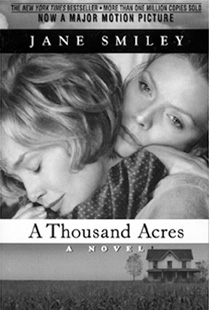| Video Vex Hollywood fails with movies based on games By Guy Bickers staff reviewer Today's lecture might interest some of you, while others will possibly run away in fear. Today we will discuss the impact of video games on pop culture. Some of you are already scoffing; yet a brave few of you hold your heads high and proudly proclaim, "Huh?"
Take a look at Hollywood. Remember "The Wizard" from the mid-80s? Lookie, Fred Savage playing Nintendo on the big screen. Granted, it was not a cinematic masterpiece, but it started a trend. Sadly the vast, and I mean very vast, majority of Hollywood's attempts to take silicon to celluloid have been pure, unadulterated awful. Remember "Super Mario Brothers?" How about the more recent "Wing Commander?" I hate to say it, but the only decent movie to come from a video game was "Mortal Kombat" and that is definitely in the middle of the pack when it comes to cinema. But despite these failures, or perhaps in spite of them, Tinseltown's giving it another shot. Lara Croft, the shapely lass who wears less in the snow than an old Green Bay lineman, is jumping from the monitor to the 64-screen gigaplex sometime next year. (Note to the production company: have more plot than the game. She's hot, sure, but there also needs to be a brain. Jiggle alone can't sell a movie; look at "Barb Wire.") Sonic the Hedgehog still has a TV show, as well. There's a market for this stuff, but that market has a brain, unlike so many of the films catering to them. Also, did you realize the single most profitable day in entertainment history doesn't belong to Spielberg, Cameron or Lucas? Nope, it belongs to Sega. In 24 hours it sold over $97 million worth of games and systems. 9/9/99 was the biggest day for any entertainment group ever. "Jurassic Park" runs at No. 2 with $92 million over the entire weekend. "The Phantom Menace" made $27 million on day one. Since launch, the Dreamcast has made more money than either Spielberg or Lucas over the last two years. Numbers don't lie (usually), so you can't tell me games don't matter. Finally, let's look at the release schedules from now through Christmas. There are somewhere around five to six games released each week during the holiday season. There is one week coming up in which there are no fewer than 15 games scheduled to come out. In that time there are going to be an average of two to three films each week. This implies that there is a HUGE market for all those shiny little coasters in the big cardboard boxes. Granted, some will come a bit late, but the same is true for Hollywood. The only real differences in the pop culture world between movies and games are quotability and profit. More people make asses of themselves quoting "Austin Powers" than repeating dialogue from "Command & Conquer XXIV." Last year the gaming industry made a quarter of a billion dollars MORE than the movie industry. Where's the power? Gamers, baby, gamers.
'A Thousand Acres' of family By Kristina Iodice skiff staff Flawlessly weaving together the story of a family dealing with the wealth, power, corruption and struggles that result from owning a massive tract of land, "A Thousand Acres" grasps the interest of the reader and refuses to release it. Jane Smiley has written an exceptional story about a family and its trials in a rural American heartland community. "A Thousand Acres" tells of the Cook family as it breaks apart and the human cost involved when trying to conquer the land. It is a moving and compelling novel that includes such diverse topics as family dysfunction and farming as practiced on large industrial farms.
As the novel continues, however, not even the massive acreage is enough to stay the hand of tragedy. Ginny and Rose are close sisters, with Ty and Pete as their husbands. Larry Cook is the overbearing father, the owner and the manager of the vast family property. He decides to form a corporation, with his daughters owning shares in order to lower inheritance taxes when he dies. This idea, starting as an insignificant seed that everyone in the county laughed at, initiates a chain of events that will tear the Cook family apart and will result in the loss of their land and the comfort they find in each other. The manner in which Smiley guides the reader to follow the destruction of the Cook family is exceptionally well-written. When the relationships in "A Thousand Acres" begin to unravel, the reader mentally begs Smiley for a situation that will reverse the negative spiraling of events. Larry is giving up his past when he signs over his farm, but he still wants to maintain rigid control over Rose, Ginny and the futures of their families. After the legalities are approved and completed, Larry degenerates mentally, and even Rose's and Ginny's problems are magnified. Ginny, in a burst of insight common in Smiley's writing, fears what the arrangement will do to her family. The land is what binds the families together; it held them during the depression and during times of prosperity, yet now it is wrenching them apart. The Cook family lacks freedom. It was buried in the land when the first Cooks bought and tilled it, and it was stolen and then locked away by Larry Cook. Readers will devour "A Thousand Acres." The characters are touching and realistic but more so because of the encompassing truths presented in Cook's life story that apply to the human heart as well as to a farmer's soul. Any reader, even if not familiar with rural life, will enjoy the novel immensely, for even to the main characters "[it is] an involving story, frightening and suspenseful, full of significance and a mystery too " and they are privy to information only hinted at within the pages. Smiley powerfully conveys with stunning insight the symbiotic relationships between a farmer and his land, including those between family members. She takes the endless horizon as glimpsed from a car speeding through America's heartland and gives it depth, a history and personality. "A Thousand Acres" is a story about carrying buried secrets and burdens and learning to live life day by day. In hindsight, the novel is filled with lessons that can apply to all readers, usually concerning some difficult issues like accomplishments when tied to forgiving the unforgivable.
'Woodstock 99' not as good as original By Allan Schwegmann staff reviewer In 1969, Woodstock revolutionized music, concert formats and lifestyles and was a great historical significance. In 1994, for the twenty-fifth anniversary, Woodstock '94 was put together and was widely successful as well. Older artists, such as Santana, Joe Cocker and Crosby, Stills and Nash were put on the bill as well as newer artists such as Live and Alanis Morissette to attract a large and eclectic crowd. Albums were made from both of the concerts which gave the true essence of Woodstock with great live cuts from notable artists with announcements and farewells which would make almost anyone crave to be there. Notably, the Woodstock '94 CD blended the old artists with the new ones, making the CD equally as diverse as the concert.
So is this CD similar to its previous Woodstock albums in the past? Not even close. The songs, for the most part, are sloppily put together, and there is no diversity between the bands and artists. No announcements are spliced through the album to make it even seem like one big concert. Instead, there are simply live cuts from bands of today. No Willie or James on this one - this sticks to the likes of Korn, Rage Against the Machine, Kid Rock, Metallica and Megadeth. There are, however, a few good songs on the album. Alanis Morisette's "So Pure" and Rusted Root's "Ecstacy" are excellent versions of their songs which add their talent and ability to make the songs different, yet shine on the live stage. Some of the songs are down right atrocious. Limp Bizkit's "Show Me What You Got" and Everlast's "Ends" sound terrible. It seems outrageous to spend over $20 for the double CD set. Perhaps if they would have cut out many of the tracks, reducing it to one CD or tape and called it "Live Tracks for Artists of Today," instead of having the audacity to refer to it as Woodstock, it might have been better. My advice to you is to wait until people get tired of the album and sell it to used CD stores (and believe me they will) and buy it on the clearance rack. Otherwise, don't even bother thinking of adding it to your collection.
The joys of Pets By Matt Welnack staff reporter When Damon Vacek returns home from a long day of football practice, the last thing he wants to think about is homework, of which he has plenty.
It is Moose's enthusiastic and excited greeting that Vacek, a senior marketing major, looks forward to when he comes home from a grueling day of class and athletics. "After a hard day, Moose is always happy to see me and he's always excited to see me," said Vacek, who is a walk-on running back for the football team. "As soon as he hears me walk in the door he starts whining, so he grabs a toy and he's ready to play." Vacek is only one of many students at TCU who own a pet. Although students who live on campus are not allowed to own pets other than fish or other animals that can survive underwater for long periods of time, students who live off campus can still enjoy the luxuries of owning a pet.
"I think it makes your day brighter," said Tiffany Ruddick, a senior nursing major. "It makes you forget about life for a few minutes." Ruddick, who owns a 1-year old Akita named Aslin, said having a pet helps her get through hard days because of the forgiving nature dogs have. "They're always forgiving and loving," Ruddick said. "They greet you the same every day, and they do cute little things to cheer you up. I think they know when you're upset, and it will change their mood, too." Having a pet can also put more stress on a student's workload because of the maintenance and care involved. Vacek bought Moose in December during finals week. Although it was nice to take study breaks with his new dog, Vacek said the timing was bad. "That was tough because he wasn't house-trained yet so it added to the stress of having to take finals," Vacek said. "But I was glad to have him anyway, because I've always wanted a dog." Because animals offer companionship, several companies take dogs and cats to nursing homes, hospital wards and mental hospitals.
According to PATS, petting a dog can actually lower a person's blood pressure and have positive effects on the emotional and physical well-being of others. Despite having to clean up behind their four-legged roommates, Vacek and Ruddick said the benefits far outweigh the burdens. "It's the constant companionship pets have to offer," Vacek said. "They always want to do what you want to do."
|
| The TCU Daily Skiff © 1998, 1999 Credits |
 Video games are often derided as the mere playthings of
children; things to be put away upon maturity. I say, "What're you
outta yer mind?!?" Since Pong first graced arcades and airports across
America, video games have left their mark on our society, for better or
worse.
Video games are often derided as the mere playthings of
children; things to be put away upon maturity. I say, "What're you
outta yer mind?!?" Since Pong first graced arcades and airports across
America, video games have left their mark on our society, for better or
worse. The novel is divided into six books (and
a brief but important epilogue), braiding the lives of Larry Cook, Rose,
Pete, Ty and especially Ginny (who acts as the narrator) into words. In
the beginning, the family appears close-knit, with each member having a
place and unique characteristics. The reader learns how the family came
to own a thousand acres of some of the best farm land in the state.
The novel is divided into six books (and
a brief but important epilogue), braiding the lives of Larry Cook, Rose,
Pete, Ty and especially Ginny (who acts as the narrator) into words. In
the beginning, the family appears close-knit, with each member having a
place and unique characteristics. The reader learns how the family came
to own a thousand acres of some of the best farm land in the state. Only five years later, the small town of Rome, New York,
decided to profit once again off of the Woodstock phenomenon by throwing
yet another anniversary bash, much to the embarrassment of the people who
attended the original Woodstock. The artists were not nearly as diverse
and, with the exception of Willie Nelson and James Brown, it seems the
rest of the artists were probably born after the first Woodstock in 1969.
Naturally, a double compact disc set followed and just recently hit the
record stores.
Only five years later, the small town of Rome, New York,
decided to profit once again off of the Woodstock phenomenon by throwing
yet another anniversary bash, much to the embarrassment of the people who
attended the original Woodstock. The artists were not nearly as diverse
and, with the exception of Willie Nelson and James Brown, it seems the
rest of the artists were probably born after the first Woodstock in 1969.
Naturally, a double compact disc set followed and just recently hit the
record stores. Vacek heads straight for Moose's kennel, his one and half
year old Jack Russell terrier, to let him out for the day.
Vacek heads straight for Moose's kennel, his one and half
year old Jack Russell terrier, to let him out for the day. Pets offer students a chance to forget about the daily stress
associated with college life.
Pets offer students a chance to forget about the daily stress
associated with college life. Pet Assisted Therapy Services, located in San Jose, Calif.,
is a volunteer organization that provides such services to local institutions.
Pet Assisted Therapy Services, located in San Jose, Calif.,
is a volunteer organization that provides such services to local institutions.